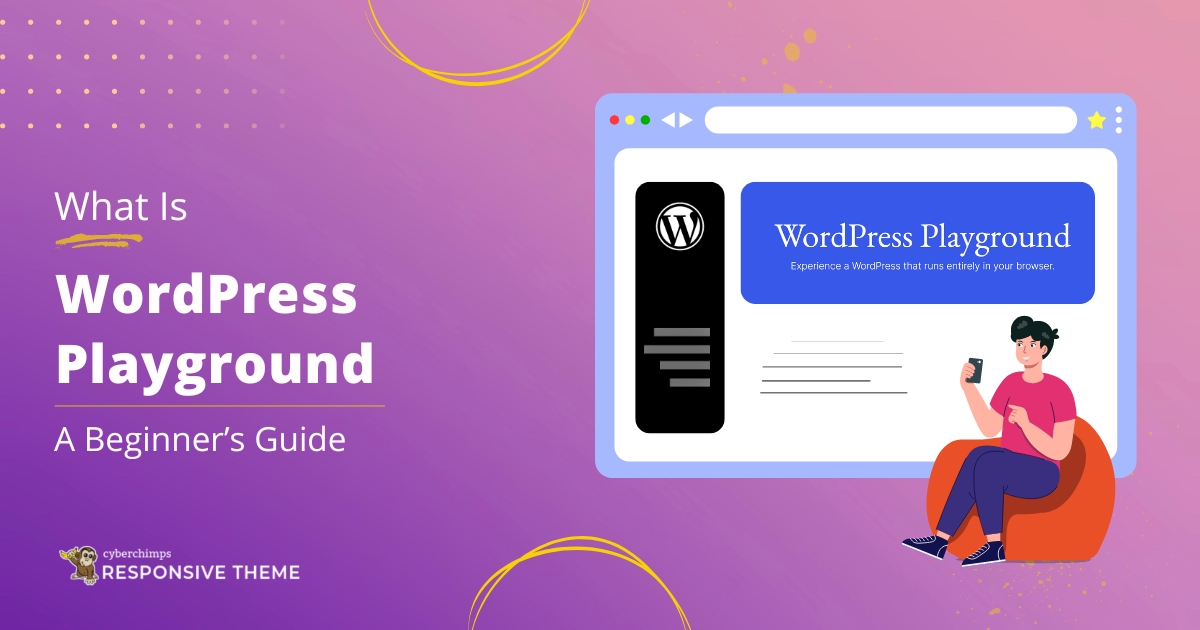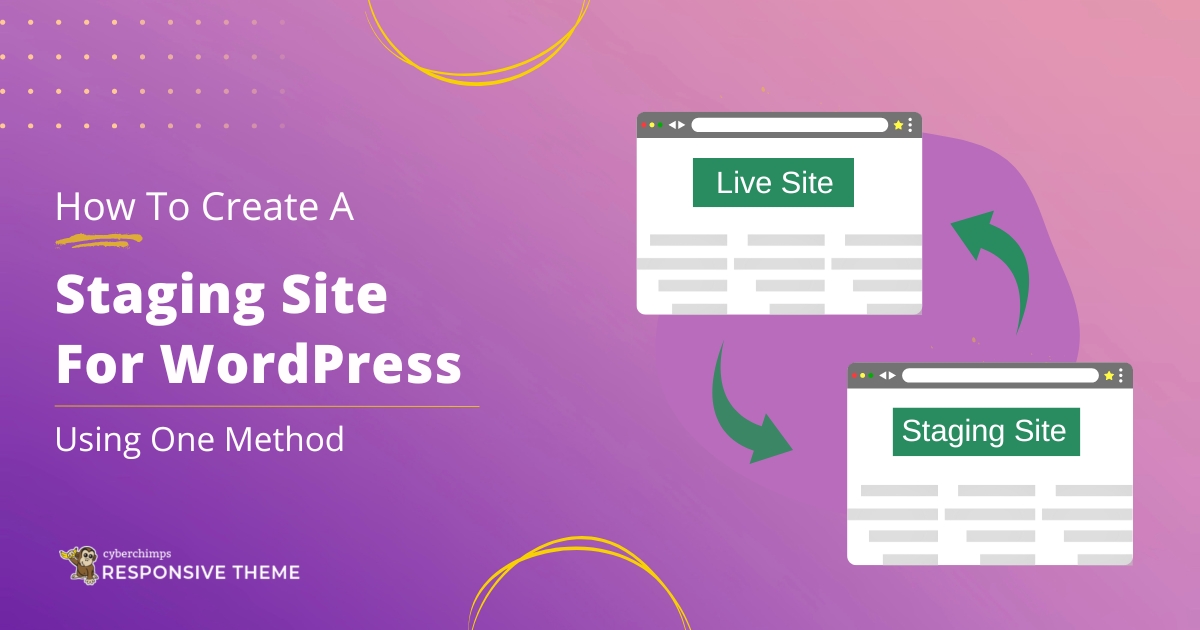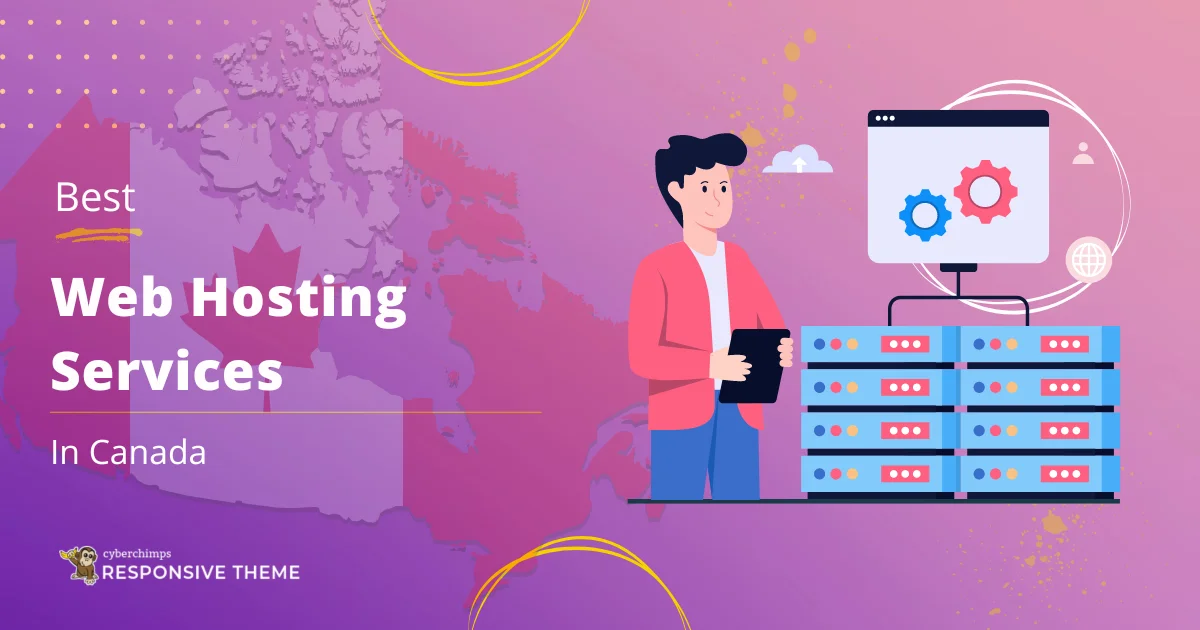Are you wondering what exactly a blog is and how it benefits everyone?
A blog is a website or online platform where individuals or groups regularly publish written content through articles or posts.
This content you’re reading now is the best example of a blog.
By writing a blog, you can share helpful information, spread awareness about a particular niche, influence users to take action, and more.
In the field of business, blogging is often considered to be one of the best methods to increase brand visibility and awareness.
Here, in this article, we’ll go through the concepts of:
- What is a blog?
- Benefits of blogging
- Which blog platform is the best?
- How to Choose the right blog?
Let’s dive right into the article and learn about blogging.
What is a Blog?

A blog is a website or an online platform run by an individual, group, or corporation that regularly publishes content as blog posts about a specific topic.
The posts are usually displayed in reverse chronological order on a blog site, meaning the most recent one appears first, followed by the rest.
Additionally, you can include topics like your personal experiences, hobbies, interests, opinions, and news. Furthermore, blogs are usually conversational, allowing you to express your thoughts, share information, and connect better with your audience.
Lastly, readers can interact with your content by leaving comments, sharing social media posts, and subscribing to your page to receive future updates about posts.
Blogs have become increasingly popular due to their ease of use and accessibility. Moreover, allowing anyone with internet access to create and share their ideas, knowledge, and experiences with a global audience.
Benefits of Blogging
Blogging is a form that expresses your art of writing. Writing a blog connects with people and benefits in multiple ways.
Let’s look into some of the benefits that blogging can provide.
- Sharing Information: Blogging allows you to share your knowledge, experiences, and ideas with a broad audience. You can also write about topics you’re passionate about and provide helpful information to others.
- Building a Community: You can connect with like-minded individuals interested in your topics. It creates an opportunity to engage in discussions, receive feedback, and build relationships with your readers.
- Personal Development: Improves your writing skills, creativity, and critical thinking and encourages you to research and learn more about your chosen topics.
- Increased Visibility: By optimizing your blog posts for search engines and sharing them on social media platforms, you can attract organic traffic and increase your online visibility.
- Personal Branding: Furthermore, blogging establishes and enhances your personal brand by using the mode of content writing.
- Learning from Others: You can connect with other bloggers and learn from their experiences. This lets you gain insights, exchange ideas, and expand your knowledge.
- Content Marketing: Businesses regularly publish valuable and relevant content to attract and engage target audiences. Hence, blogs can provide helpful tips and advice and establish a great relationship with your customers.
- Driving Website Traffic: Blogs are an effective way to drive traffic to a business website. Each blog post creates a new indexed page on the website, increasing the chances of appearing in search engine results.
- Lead Generation: Blogs often help produce leads by including call-to-action (CTA) buttons or forms within the blog posts. Moreover, most businesses can capture visitor information, helping to identify the customer avatar.
Now that you’ve gone through the various benefits of blogging let’s look into why blogging is a great practice.
Why Blogging?
Blogging is a great way to share knowledge and express creativity and helps to attract traffic, ultimately leading to personal and professional growth.
Here are multiple reasons to start blogging:
- Establish yourself as an authority in your industry, which may lead to new opportunities, such as job offers or collaborations with leading companies.
- Blogging provides a creative outlet to showcase your unique writing style and perspective.
- Whether you’re into writing, photography, or other forms of creativity, a blog can be a platform to express yourself and engage with a like-minded community.
- A blog helps you establish and enhance your personal brand. By consistently producing valuable content, you can build credibility and become known for your insights in a specific field.
- Blogging can provide opportunities for generating income. Also, once your blog gains traction and attracts a significant audience, you can explore monetization options such as advertising, sponsored content, affiliate marketing, or creating and selling your own products or services.
Types of Blogs
Do you want to start a blog but don’t know where to start?
Here are the various types of blogs you can choose from and create your own article.
1. Personal Blog
Personal blogs are like online journals where you can share your experiences, interests, and perspectives.
Moreover, they can cover various topics, including hobbies, reflections on life, personal stories, and thoughts on various subjects.
2. Travel Blog
If you love exploring different destinations, you can share travel experiences, provide tips and recommendations for fellow travelers, and often include stunning photographs of the places they visit.
3. Food Blog
Food blogs are dedicated to all the things related to food. You can share your favorite recipes, cooking techniques, and culinary experiments.
You can include food reviews and discuss food-related topics like nutrition and culture.
4. Fashion and Beauty Blog
Fashion and beauty blogs focus on the latest fashion trends, styling tips, beauty product reviews, and personal fashion choices.
You can showcase outfits, share beauty tips and tutorials, and provide insights into the fashion world.
5. Lifestyle blog
Lifestyle blogs cover a broad spectrum of topics related to daily life.
Often these blogs include health and fitness advice, home decor ideas, parenting tips, relationship guidance, and general life advice.
6. Technology Blog
Technology blogs are about gadgets, software, electronics, and IT trends.
The critical sub-topics are reviewing the latest tech products, providing guides on using specific software or devices, discussing emerging technologies, and sharing tech-related news and updates.
7. Business and Finance Blog
Business and Finance blogs cater to individuals interested in entrepreneurship, startups, personal finance, investing, and business strategies.
In general, bloggers share insights, tips, and analysis on topics like financial planning, money management, marketing strategies, and career development.
8. DIY and Crafts Blog
Art and crafts blogs offer tutorials, ideas, and inspiration for various do-it-yourself projects and crafts.
Blogging lets you share step-by-step guides, creative ideas, and helpful tips for crafting, home improvement, and other hands-on activities.
9. Health and Wellness Blog
Health and wellness blogs focus mainly on promoting the overall well-being of people.
If you’re someone who is well-versed in topics such as fitness, nutrition, mental health, self-care practices, and healthy lifestyle choices, you can easily start your own blog.
Once you have the specific field you want to focus on, it’s easy to start creating blogs.
Choosing the Best Platform

Choosing the right blogging platform is an important decision when starting a blog.
There are several popular blogging platforms to choose from, including WordPress, Blogger, and Medium.
Let’s learn about each platform in brief and choose the best platform.
1. WordPress

WordPress is one of the most popular blogging platforms, known for its flexibility and customization options. It offers a user-friendly interface, a wide range of themes like the popular Responsive theme, and thousands of plugins.
With WordPress, you can create a highly customizable blog, and it’s suitable for both beginners and advanced users.
Overall if you see, this platform gives you complete control over the blog design and functionality.
2. Medium

Medium is a user-friendly platform that focuses on content creation and reading experience. It’s known for its clean and minimalist design, making writing and publishing articles easy.
Since Medium has a built-in audience, your posts can reach a broader readership. However, customization options are limited, and you don’t have complete control over the platform.
3. Joomla

Joomla is a robust content management system (CMS) that can be used for blogging. In addition, it offers advanced features and customization options, making it suitable for creating complex websites and blogs.
However, Joomla requires some technical knowledge and may be more suitable for experienced users or those with specific website requirements.
4. Drupal

Drupal is another powerful CMS that provides extensive customization capabilities and scalability. It’s known for its ability to handle large and complex websites.
However, Drupal has a steeper learning curve and requires more technical expertise than other platforms. It’s suitable for advanced users or those with specific website needs.
5. Blogger

Blogger is a straightforward blogging platform owned by Google. It’s beginner-friendly and offers a simple interface for creating and managing blogs.
This platform provides basic customization options and integrates well with other Google services. However, it has limited features compared to other platforms, and the design options may be more limited.
6. Typepad

Typepad is a paid blogging platform that offers a balance between simplicity and customization. It provides a user-friendly interface, pre-designed templates, and features like built-in analytics.
Additionally, it’s known for its stability and customer support, making it suitable for bloggers who prefer a hosted solution and want a hassle-free experience.
Best Platform for Blogging
We recommend using WordPress as it’s the most popular and easy-to-use platform. For this reason, more than 40% of the world’s blogs are created in WordPress.
The platform allows you to customize any type of content and also lets you include various attractive design elements.
Finally, with a popular theme like Responsive theme, you can download ready-made templates for creating any blog website.
In the next section, let’s look at how to create a blog website with WordPress.
Resources to Build Your WordPress Website?
WordPress is the best platform for building your website, allowing you to integrate with third-party software easily. Considering this, we’ve listed the important prerequisites required before building a website.
The most important resources to build a website are:
- Domain Name and Hosting
- Theme
- Plugins
These resources are most important in building a solid and SEO-friendly website.
How to Create a WordPress Blog Website?
Building a blog website is an easy and hassle-free process. You only need to follow these simple steps to create any website of your choice.
To build a blog website:
Step 1: Get Domain Name and Hosting
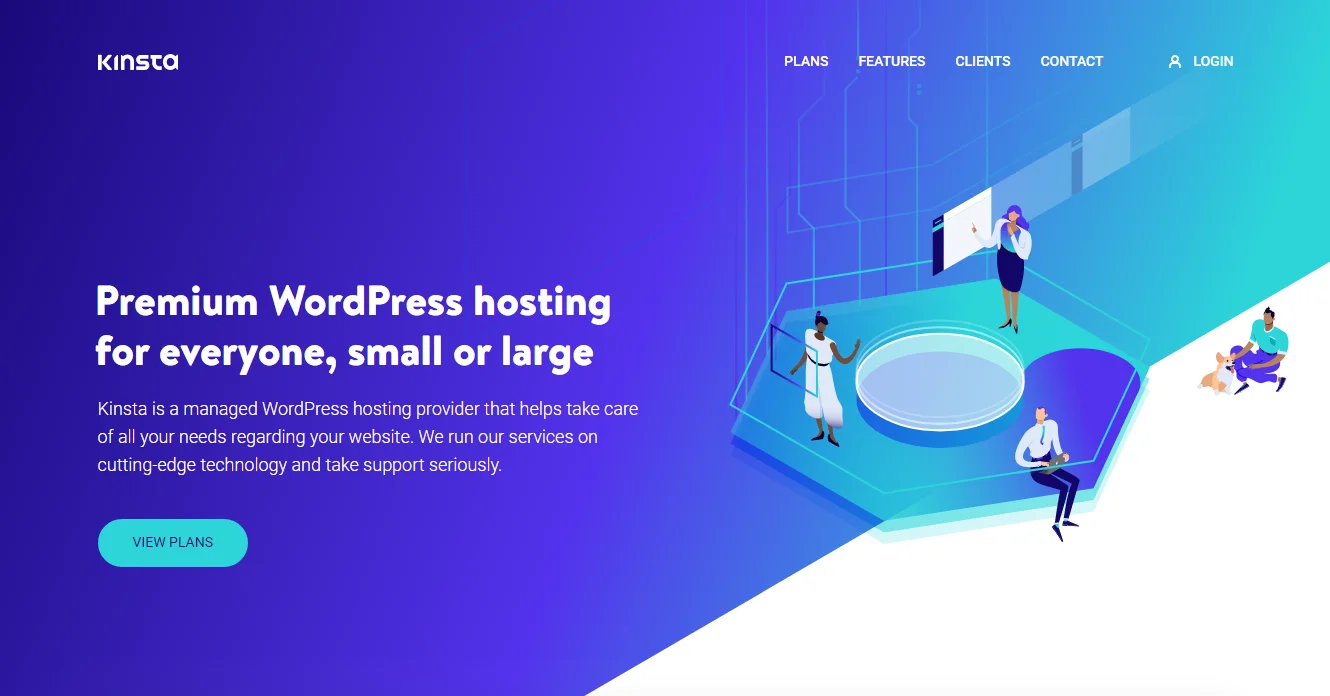
The first step in creating your website is to choose a domain name and web hosting service. Your domain name should reflect your brand and be easy to remember.
You can register a domain name with a domain registrar such as Namecheap or GoDaddy. For web hosting, we recommend using a reliable hosting provider such as Kinsta.
Kinsta offers different features and services that are relevant to your business:
- High-performance infrastructure using Google Cloud Platform
- Developer-friendly features like SSH access, WP-CLI support, Git integration, and more
- Automatic scaling based on traffic spikes or lulls
- 24/7 support from a team of experts
After choosing a domain name that is easy to recall and a good hosting platform, now it is time to start building your website.
Step 2: Install WordPress
Once your domain name and web hosting are ready, you can install WordPress from your hosting account. Most web hosting providers offer a one-click installation process that makes it easy to start.
Step 3: Install Responsive Theme
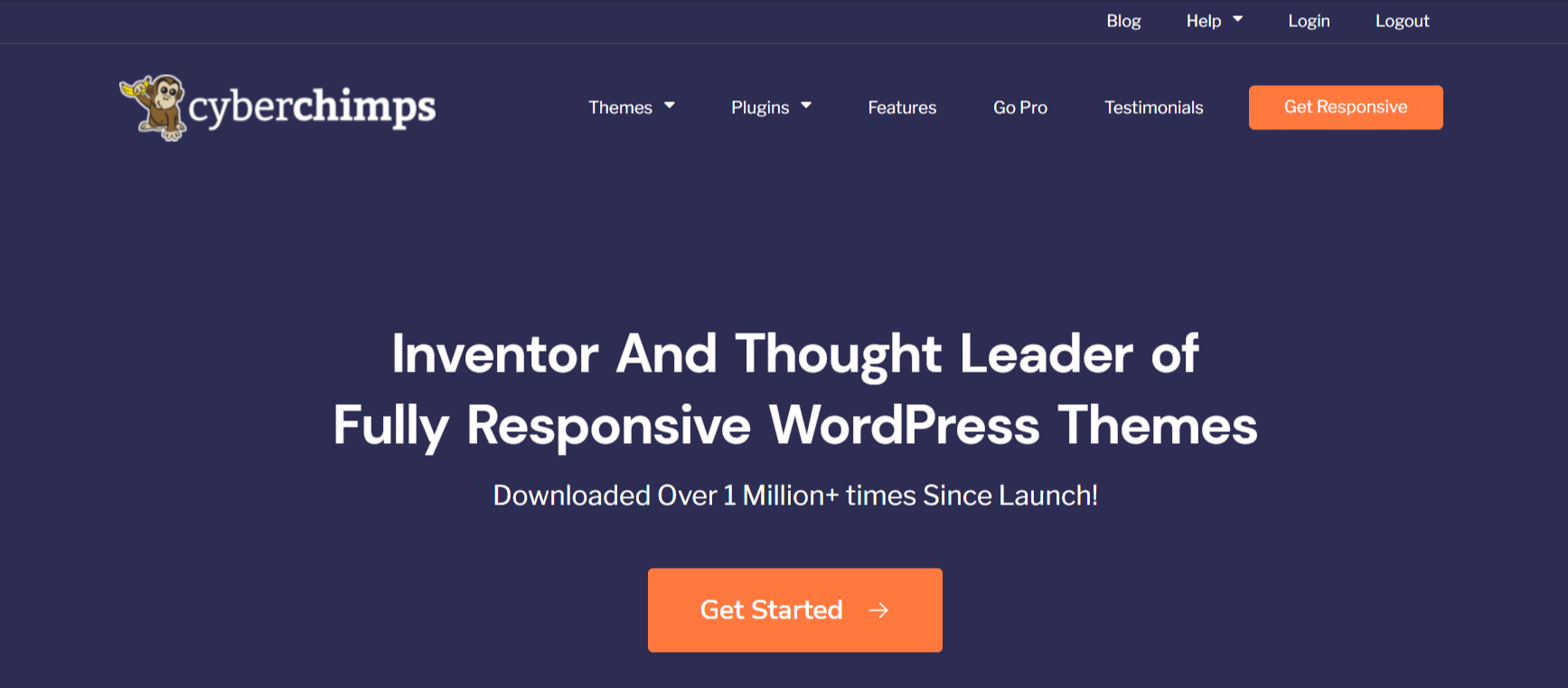
The next step is to select a theme for your website. Your chosen theme should be visually appealing, easy to customize, and mobile-friendly.
One excellent option is the Responsive theme, a popular and versatile theme perfect for creating any kind of website.
You can easily install the Responsive theme by heading over to your dashboard and navigating to the Appearance menu > Themes.
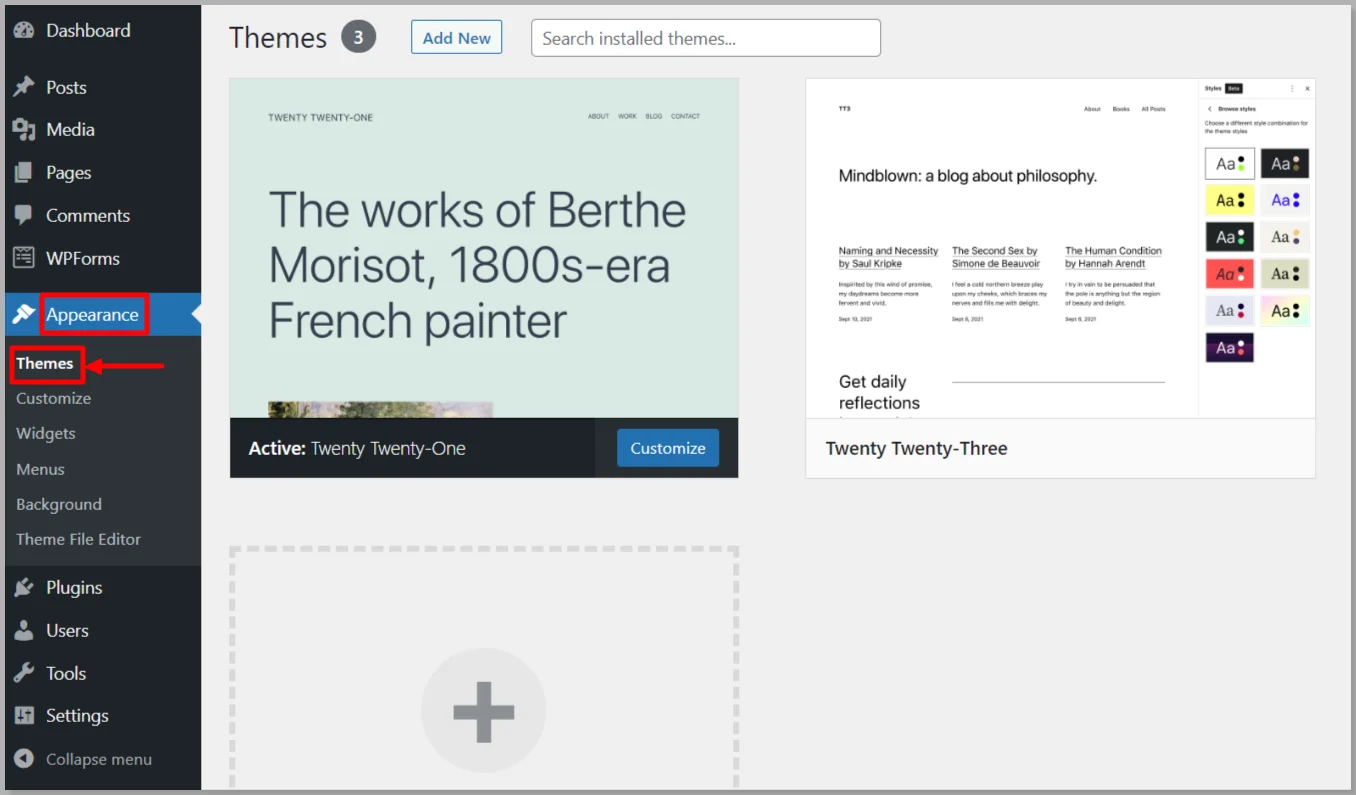
Click on the Add New button.
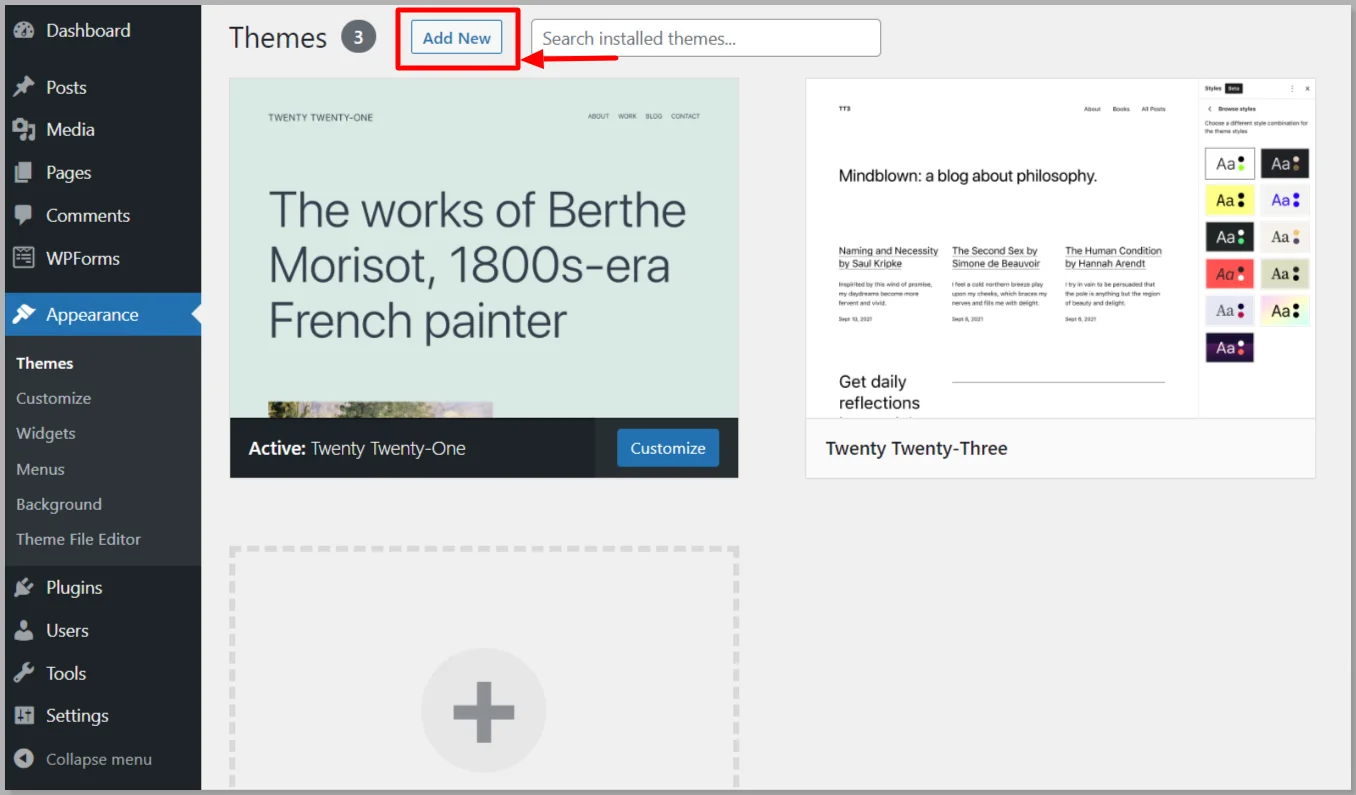
Search for Responsive in the search bar option.
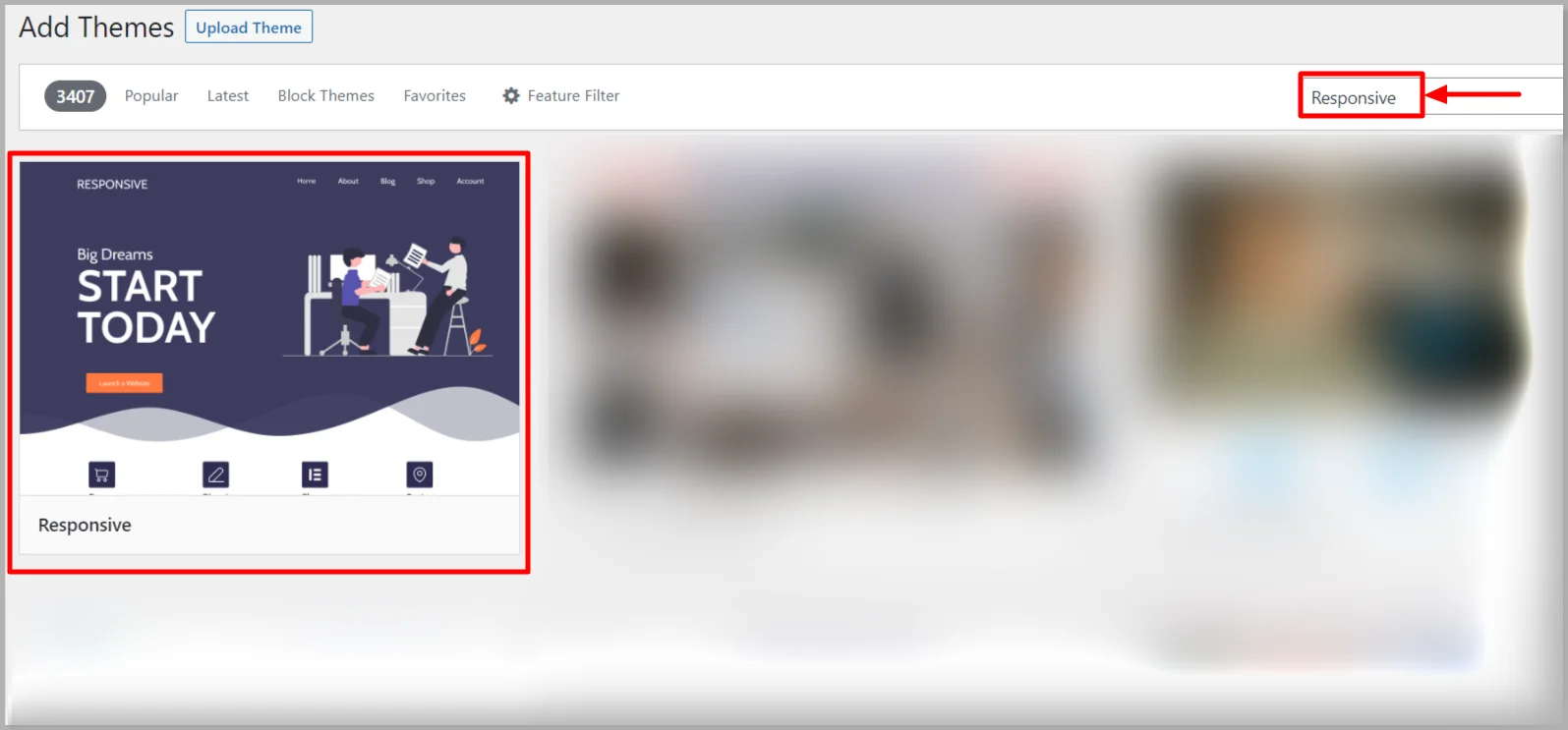
Click on the Install button to install the Responsive theme.
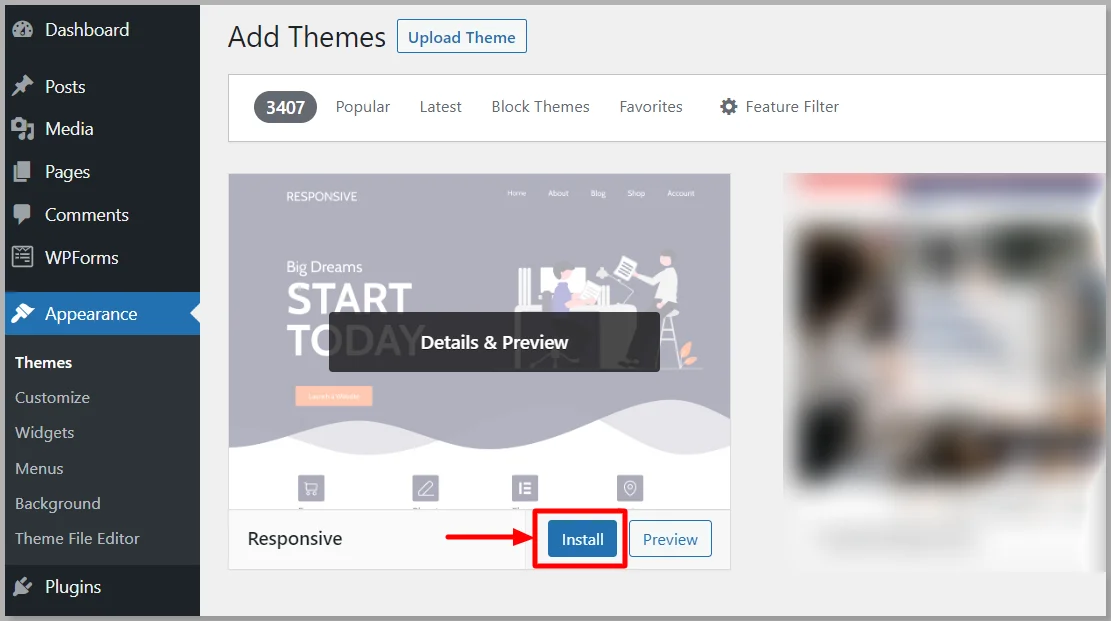
Lastly, click on the Activate button.
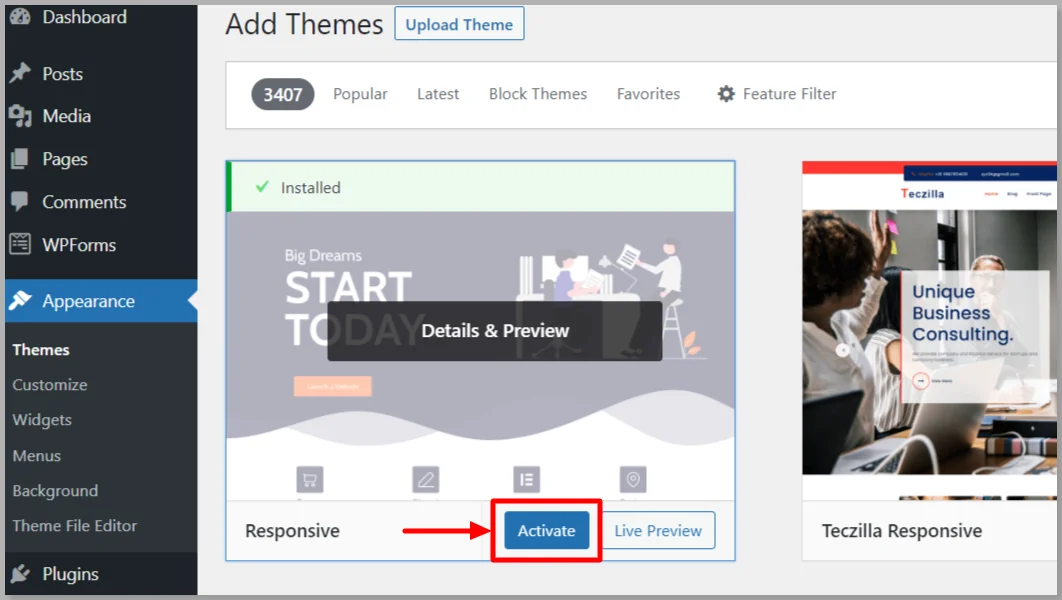
Step 4: Install the Responsive Starter Templates Plugin
From your dashboard, navigate to the Plugins menu, and click on the Add New button.

Search for Responsive Starter Templates in the search bar option provided.
Click on Install Now.
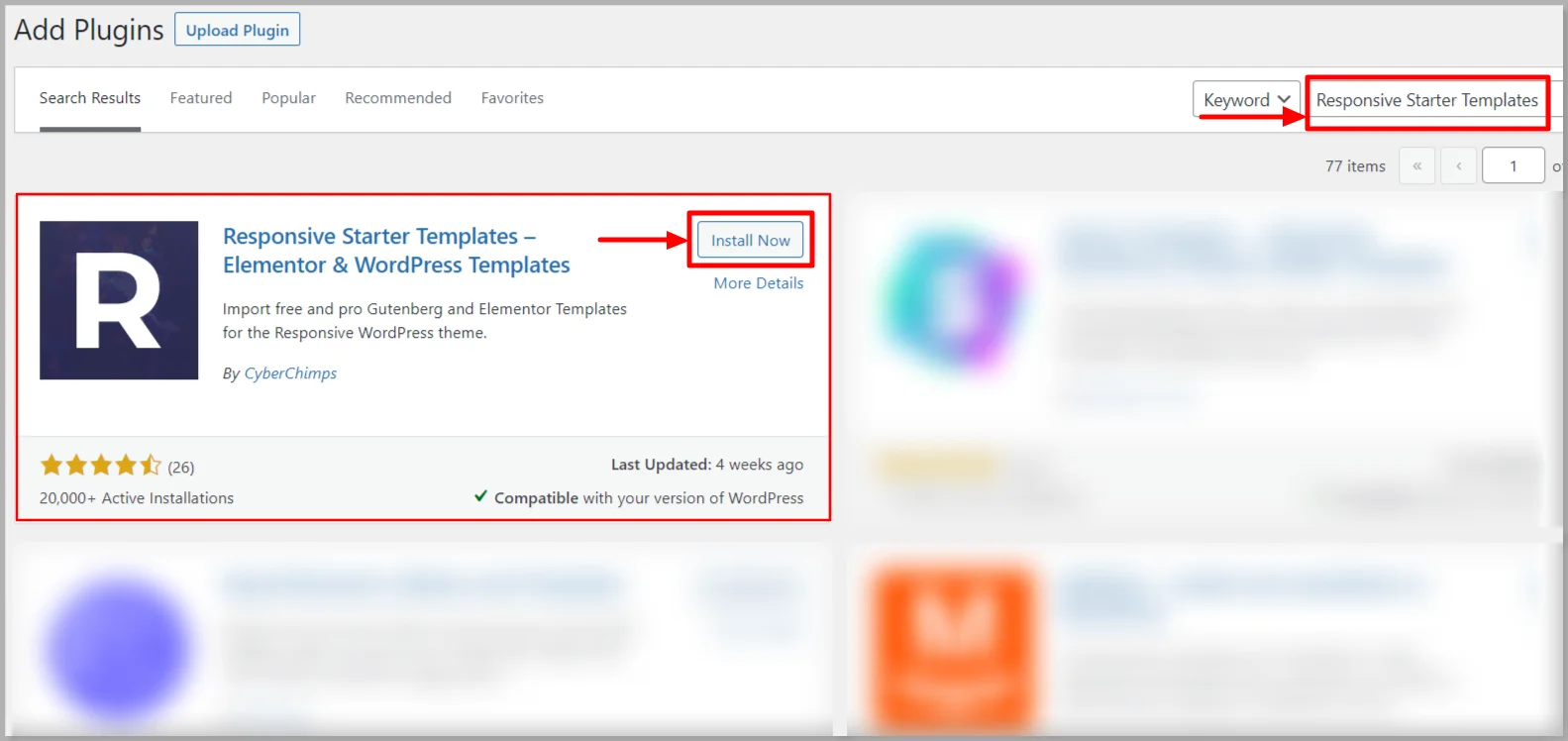
Next, activate the plugin by clicking on Activate button.

After activating the plugin, go to the Responsive menu > Responsive Templates.

Search for the template you would like to create a blog website.
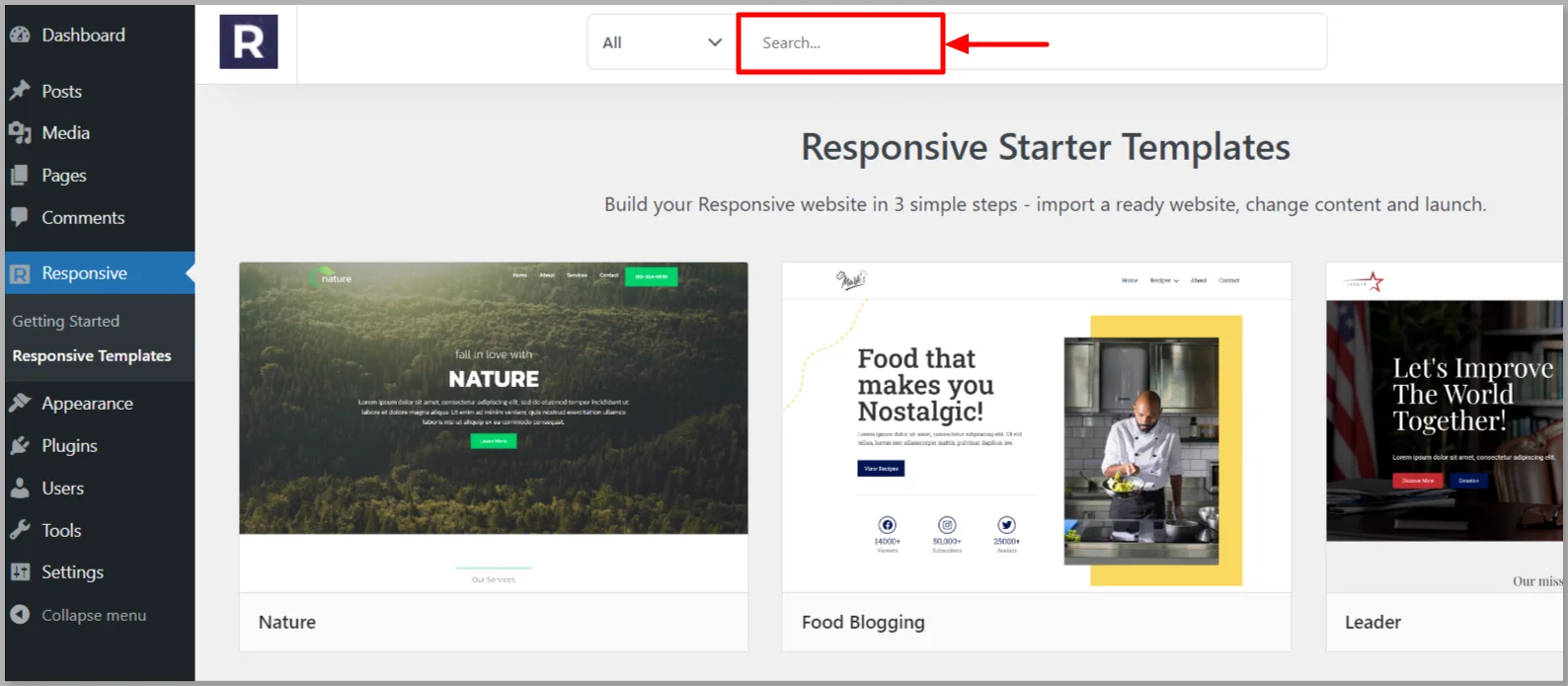
Preview the template and click on the Import site button. The template will be imported into your website.
The last step in the process is to edit the website template using a plugin like Elementor.
That’s it. You have successfully created a beautiful blog website.
Conclusion
A blog is indeed a perfect way to spread awareness about any topic and helps in building a connection with your target audience.
Blogs help in enhancing your visibility as well as improve your personal branding.
WordPress is the best platform to create a blog as it’s flexible and easily customizable. Another key point is it comes with themes and plugins that are responsible for its full customization.
Also, WordPress-compatible theme like the Responsive, enhances the blog functionality and makes your website SEO friendly.
If you’ve liked reading this article, don’t forget to look at our other similar articles:
- How To Earn And Grow Money From Your Blog
- What is WooCommerce? Beginner’s Guide
- How to Build a WooCommerce Website with Elementor
- Elementor Review: Is It Still Relevant?
Are you already excited about building a blog website with WordPress? Grab the Responsive theme and Elementor to build the best website!


